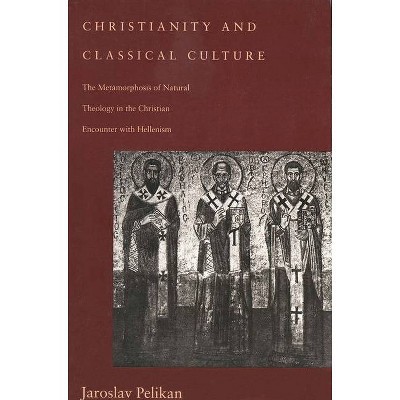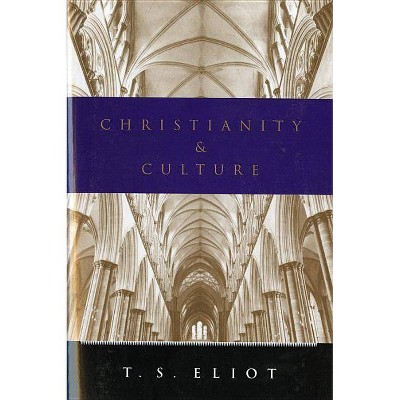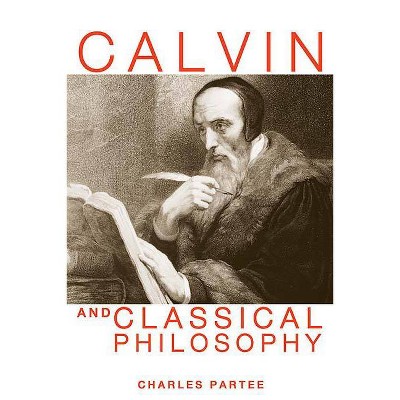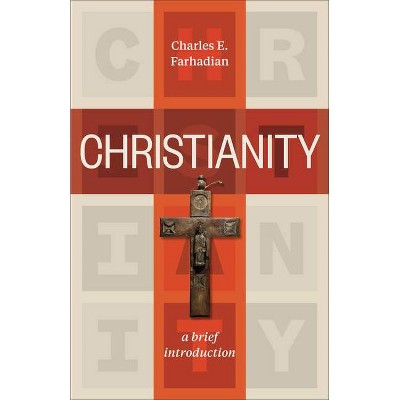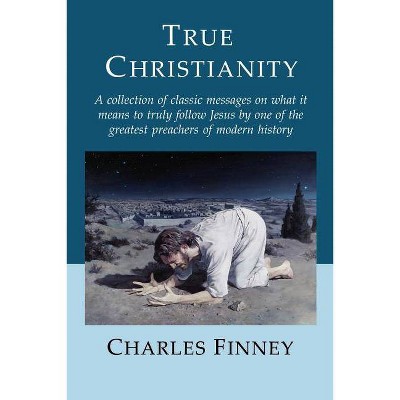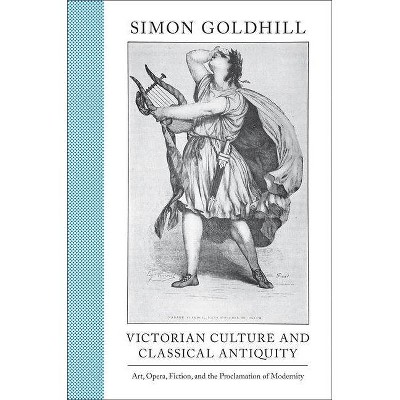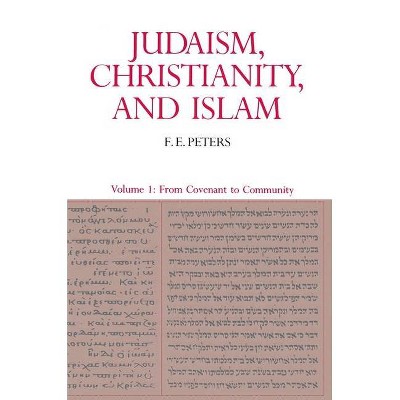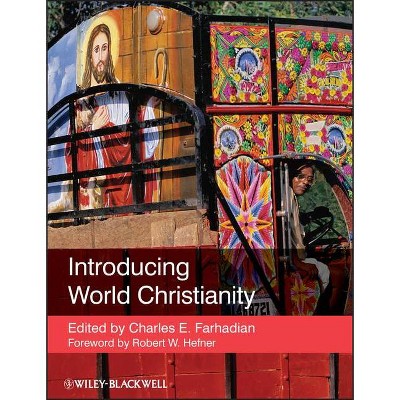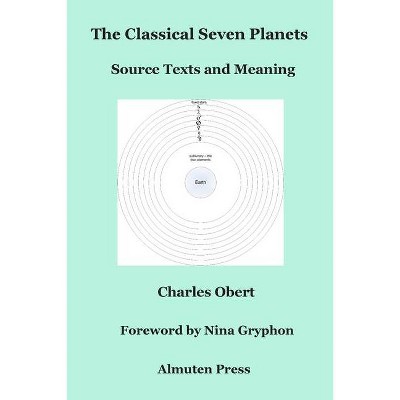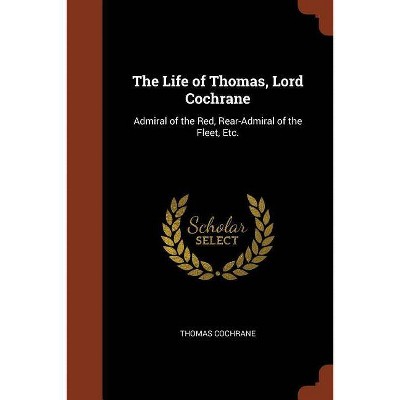Christianity and Classical Culture - by Charles Norris Cochrane (Paperback)
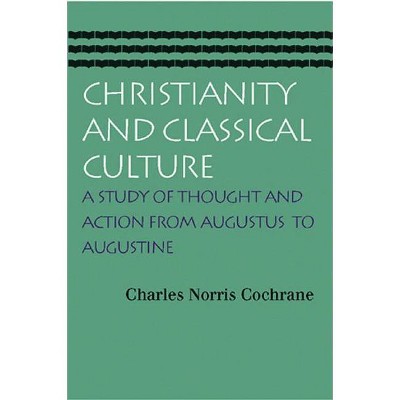
Similar Products
Products of same category from the store
AllProduct info
<p/><br></br><p><b> Book Synopsis </b></p></br></br><p><strong><em>Christianity and Classical Culture</em></strong> is considered one of the great works of scholarship published in the last century. The theme of <em>Christianity and Classical Culture</em> is the fundamental change in thought and action that occurred from the reign of Augustus to the time of Augustine. The classical world sought to practice politics and understand the world in purely rational terms, but the difficulties of this program were already evident as Christianity began developing a completely new understanding of the human world. It is from this revolution in ideas that our modern world was forged.</p> <p>W. H. Auden wrote of an earlier edition in <em>The New Republic</em>: "Since the appearance of the first edition in 1940, I have read this book many times, and my conviction of its importance to the understanding not only of the epoch with which it is concerned, but also of our own, has increased with each rereading."</p> <p><strong>Charles Norris Cochrane</strong> (1889-1945) was educated at the University of Toronto and Oxford (Corpus Christi College) and taught at the University of Toronto.</p><p/><br></br><p><b> Review Quotes </b></p></br></br><br>Originally published in 1940, <b><i>Christianity and Classical Culture: A Study of Thought and Action from Augustus to Augustine</b></i> by Charles Norris Cochrane (1889-1945) is a thoughtful, insightful, informative examination of the contrast and sometimes clash between the classical era's culture and struggle to understand the world in purely rational terms, and the completely new understanding of the world developed and spread by Christianity. From divisions of church and state; to the impact that Constantine and the spread of Christianity had; to a technical dissection of propositions concerning sometimes starkly different worldviews, <i><b>Christianity and Classical Culture</b></i> has survived the test of time to remain a pillar of philosophical, religious, and cultural analysis. <p/><b>John Taylor<br><i>The Midwest Book Review</i><br> February 2004</b> <p/><br> The reissue of the classic work published in 1940 by Oxford University Press, this volume describes the revolution in thought and action that came about through the impact of Christianity upon the Greco-Roman world in the period from Augustus and Virgil to Theodosius and Augustine. Under the heading "reconstruction' it first considers the following topics: <i>pax Augusta</i>--the restored republic;<i> Romanitas</i>--empire and commonwealth; <i>Roma aeterna</i>--the apotheosis of power; and <i>regnum Caesaris regnum diaboli</i>. Then under "renovation" it discusses these topics: the new republic--Constantine and the triumph of the cross; <i>Quid Athenae Hierosolymis?</i>--the impasse of Constantinianism; apostasy and reaction; state and church in the new republic; and Theodosius and the religion of state. Finally under "regeneration" it deals with these matters: the church and the kingdom of God; <i>nostra philosophia</i>--the discovery of personality; and divine necessity and human history. An appendix (pp. 573-609) included in this edition provides English translations (by K. Alvis and J. Alvis) of the Latin and Greek words and phrases that appear in the main text. Cochrane (1889-1945) was professor of Greek and Roman history at the University of Toronto. <p/><i><b>New Testament Abstracts</i></b><br><b>January 2005</b> <p/><br> For 64 years <i><b>Christianity and Classical Culture</i></b> has stood as a definitive study of this practice of politics and the understanding of the world in rational terms during classical times, and the revolution in this thinking with the advent of Christianity. With fresh translations of the Latin and Greek, Liberty Fund arranged for this edition with the original publisher, Oxford University Press, as part of the its encouragement of study of the ideal of a society of free and responsible individuals. As the title suggests, this is not a casual read, but a scholarly text. The theme is explored in three parts: <br>- Reconstruction of the Roman Empire, including the influence of Hellenization and the rise of Christianity; <br> - Reconstruction, with Constantine's creation of the Holy Roman Empire and the development of government services, and Theodosius' transformation of it into an Orthodox Empire; and <br> - Regeneration, with the acceptance of the Nicene Creed, development of theologico-ehical values, and the continuing influence of Roman ideas of justice and power.<br> It is interesting to read this book in the post-Sept. 11, 2001, world, where many of the actions and ideas of classical Roman times are seemingly being repeated in a modern context, by leaders in the United States, Europe and the Middle East alike. <p/><i><b>Carroll County News Weekend Edition</i></b><br><b>April 2004</b> <p/><br>Click here for a pdf of a brochure featuring <i>Christianity and Classical Culture</i></p> <p/><br><br>
Price History
Cheapest price in the interval: 11.99 on October 22, 2021
Most expensive price in the interval: 11.99 on December 20, 2021
Price Archive shows prices from various stores, lets you see history and find the cheapest. There is no actual sale on the website. For all support, inquiry and suggestion messages communication@pricearchive.us
